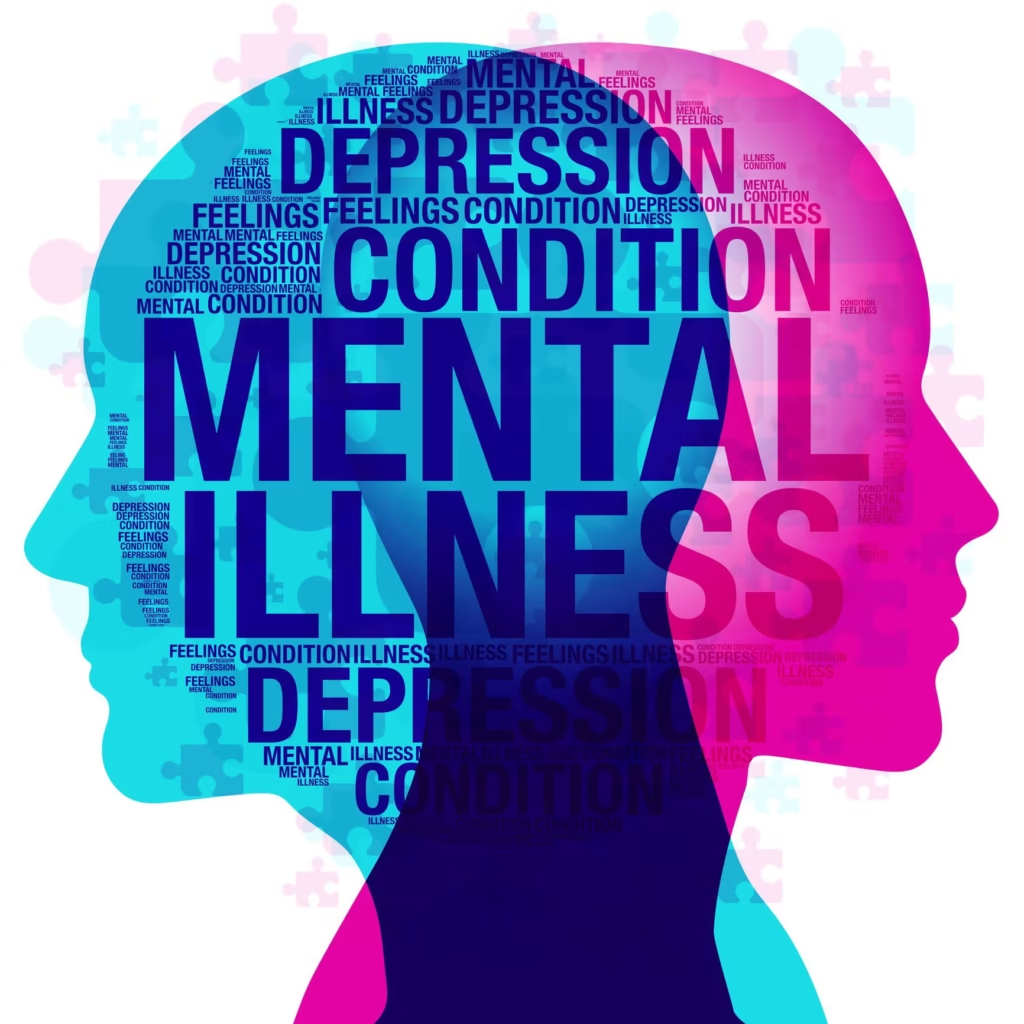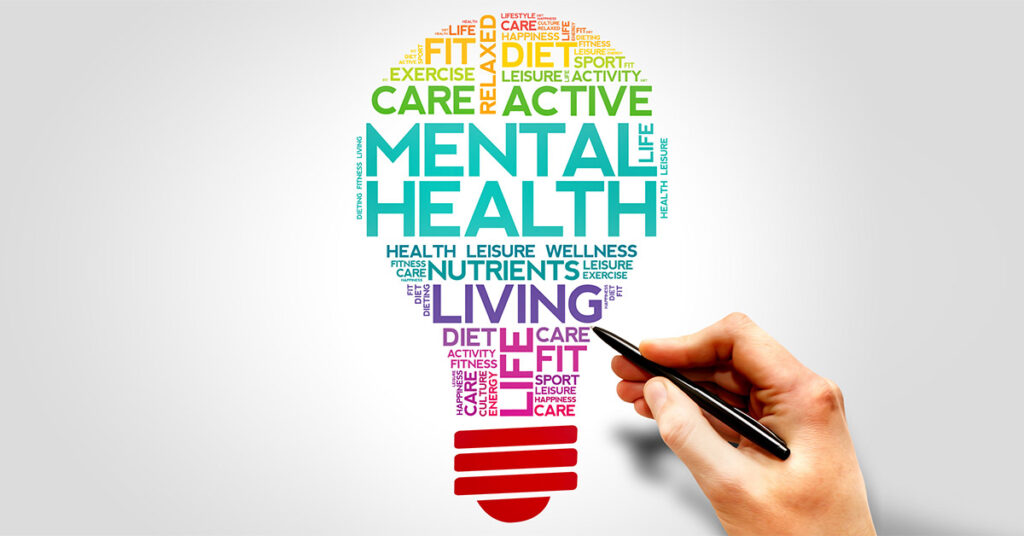Mental health is not just the absence of mental illness — it refers to our emotional, psychological, and social well-being. It affects how we think, feel, and act, as well as how we handle stress, relate to others, and make choices in our daily lives.
Good mental health helps us cope with the challenges of life, work productively, and maintain healthy relationships. It allows us to realize our full potential and enjoy life more fully.
On the other hand, poor mental health can lead to issues such as anxiety, depression, mood swings, and even physical health problems. Just like we take care of our bodies, it’s important to take care of our minds. This includes managing stress, getting support when needed, practicing self-care, and building positive relationships.

Why Is Mental Health Important?
Good mental health provides a foundation for overall well-being. When your mental health is strong, you’re more likely to:
Maintain better physical health
Have higher self-esteem and confidence
Experience better emotional balance
Achieve your goals and stay motivated
Avoid harmful behaviors like substance abuse

10 Practical Tips for Improving Your Mental Health
1. Stay Connected
Human connection is vital. Reach out to friends, family members, or support groups regularly. Even a short call or a walk with a friend can boost your mood and make you feel less isolated.
2. Practice Mindfulness
Mindfulness involves focusing on the present moment without judgment. Techniques like deep breathing, meditation, or yoga can help reduce stress and improve your ability to manage emotions.
3. Get Regular Exercise
Physical activity releases endorphins—natural mood lifters. Aim for at least 30 minutes of moderate exercise most days of the week. Even a daily walk can have mental health benefits.
4. Establish a Routine
Structure provides a sense of stability. Set consistent times for waking up, eating, working, and sleeping to bring balance and order to your day.
5. Limit Screen Time
Too much time on phones or computers—especially on social media—can increase anxiety and self-comparison. Try setting limits and take regular digital breaks.
6. Eat a Balanced Diet
Nutrition affects mood and energy levels. Eat plenty of fruits, vegetables, lean proteins, and whole grains. Stay hydrated and limit sugar and caffeine intake.
7. Get Enough Sleep
Poor sleep can worsen mental health symptoms. Aim for 7–9 hours of quality sleep each night by creating a calming bedtime routine and limiting screens before bed.
8. Talk to Someone
Whether it’s a friend, family member, or therapist, talking about what you’re going through can be a huge relief. Don’t hesitate to seek professional help if needed.
9. Set Realistic Goals
Break large tasks into smaller steps. Celebrate progress and don’t be too hard on yourself when things don’t go perfectly. Progress matters more than perfection.
10. Do Things You Enjoy
Make time for hobbies, creative activities, or anything that brings you joy. Doing things that make you happy helps build emotional resilience.
Conclusion
Mental health is a vital part of who we are. It shapes how we live, love, work, and grow. Taking care of your mental well-being is not only beneficial for yourself but for everyone around you. By understanding mental health and promoting open conversations, we can build a healthier, more supportive society.
